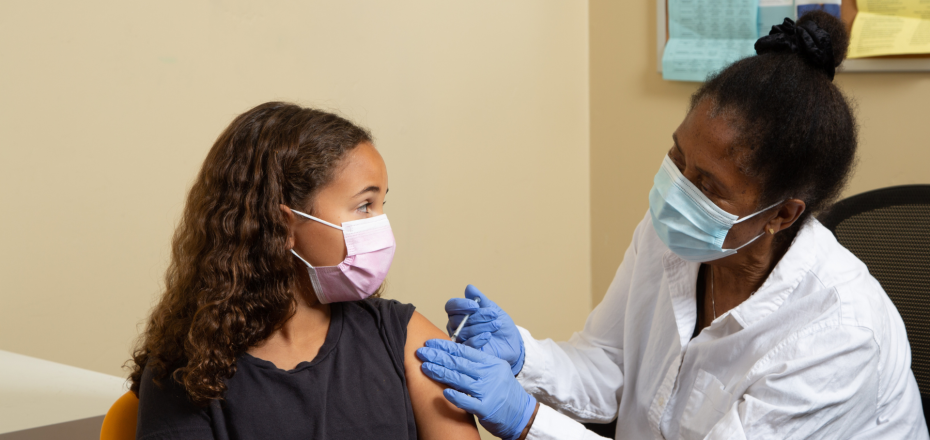Vaccines have been a significant factor in preventing the spread of dangerous diseases for centuries. In this blog post, we’ll take an in-depth look at how vaccines work, the importance of vaccinating, and the potential risks of not immunizing ourselves and our families against disease. We’ll also explore how medical technology advances make it easier to access life-saving vaccinations.
How Vaccines Work
Vaccines work by protecting people from diseases. They work by using viruses or bacteria to make people sick. When these viruses or bacteria enter the body, they cause the immune system to produce antibodies. The antibodies kill the viruses or bacteria and prevent the person from getting sick.
Vaccines are made from viruses or bacteria that have been weakened so that they can’t make people sick. The viruses or bacteria are then injected into human cells on the back of a lab mouse. If it is effective, the human cells will create immunity, replicating in numbers. From there, the vaccine can be developed. It usually takes about six weeks to create a vaccine.
Types of Vaccines Available
There are many types of vaccines available that can prevent disease. The most common type of vaccine is the inactivated vaccine. This vaccine is made from a dead or weakened form of the virus or bacteria. Inactivated vaccines are usually given by injection but can also be provided by mouth or nasal spray.
Another type of vaccine is the live-attenuated vaccine. This vaccine is made from life but a weakened form of the virus or bacteria. Live-attenuated vaccines are usually given by injection but can also be provided by mouth or nasal spray.
The last type of vaccine is the subunit, recombinant, polysaccharide, and conjugate vaccines. These vaccines are made from pieces of the virus or bacteria. Subunit, recombinant, polysaccharide, and conjugate vaccines are usually given by injection.
Why Get Vaccinated
When it comes to disease prevention, vaccines are one of the most important tools we have. They work by protecting people from harmful viruses, bacteria, or other organisms that can cause disease. Vaccines are usually given through a series of shots, starting at an early age. Vaccines effectively prevent many severe and life-threatening diseases, such as polio, measles, diphtheria, and whooping cough. They also help to protect against more common illnesses, such as influenza (flu) and chickenpox. In some cases, vaccines can even help to prevent cancer.
Risks Involved with Vaccination
There are always risks involved with getting any vaccine. Still, the risks are usually much smaller than those associated with the diseases that vaccines prevent. When we get a vaccine, we’re exposed to a weakened virus or bacteria. This helps our body build immunity to that virus or bacteria without making us sick.
Most people don’t have any severe reaction to vaccines. But, like any medicine, there is a slight chance of having an adverse reaction. Severe reactions to vaccines are rare, but they can happen. If we have a severe allergic reaction (anaphylaxis), get medical help immediately. Signs of anaphylaxis include hives, swelling of the face and throat, difficulty breathing, fast heartbeat, dizziness, and lightheadedness.
Vaccines can cause other problems, such as severe headaches or fever. If we have any of these reactions, contact a doctor right away.
Debunking Common Misconceptions about Vaccination
Vaccines are essential in preventing disease. They have been proven to be safe and effective, yet there are still many things that need to be clarified about them. Let’s debunk some of the most common ones:
Vaccines cause autism
No research links immunizations to autism. Better diagnosis and awareness may have increased autism incidence in recent years.
Vaccines are not effective
Vaccines work well. The measles vaccine is 97% effective.
Natural immunity is better than vaccine-induced immunity
Vaccine-induced immunity may be better than disease-induced immunity. Vaccines are more reliable and long-lasting than natural immunity.
Vaccines contain harmful ingredients
Most vaccines contain small doses of harmless preservatives and stabilizers to maintain safety and efficacy.
Vaccines are not necessary
Vaccines prevent deadly diseases. Measles, polio, and whooping cough could spread swiftly and kill people without immunizations.
How Technology Helps Fast-Track Vaccines
Technology has played an essential role in developing and delivering vaccines quickly during public health emergencies. For example, during the 2009 H1N1 pandemic, scientists used new technologies such as next-generation sequencing (which allows for rapid identification of novel viruses) and reverse genetics (which enables fast production of vaccine candidates) to develop a pandemic flu vaccine in less than six months: a process that usually takes years.
The use of social media platforms such as Twitter and Facebook also helped disseminate information about the importance of vaccination during the H1N1 pandemic and other disease outbreaks. In addition, health authorities have used text messaging systems to send reminders about vaccination clinics and appointments to people’s phones.
Finally, technology has enabled the development of “just in time” vaccine delivery systems that can quickly adapt to the changing needs of a particular population. For example, researchers have developed mobile robots that can transport vaccines to remote areas and self-contained cold storage containers that keep vaccines safe while they are being transported.
Vaccines Are Just as Important as the Air We Breath
Vaccines are one of the most successful and cost-effective public health interventions available, preventing millions of infections and saving countless lives yearly. Despite this, vaccination rates remain suboptimal in many parts of the world, leaving communities vulnerable to outbreaks of preventable diseases.
The value of vaccines in preventing disease cannot be understated. They are safe, effective, and affordable, and their benefits far outweigh any risks. Vaccination is vital to protecting individual and community health, and everyone must have access to these life-saving treatments.









